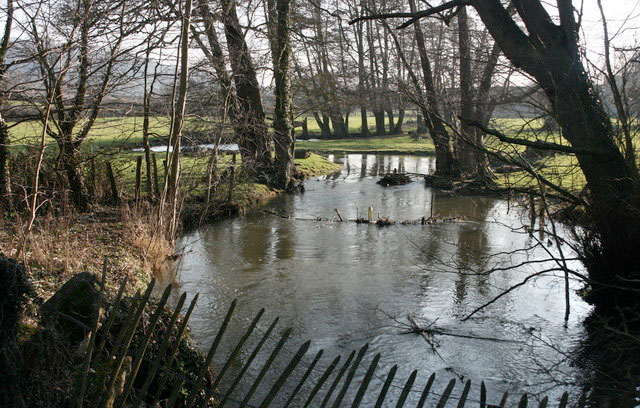
Wildlife along the river Darent – one of England's iconic chalk rivers – will be safeguarded in the after a legal agreement came into force in February.
The Environment Agency has changed two of Thames Water's abstraction licences, reducing the amount of water it can take from boreholes next to the river Darent in Kent, as these groundwater abstractions had a detrimental impact on the river.
This change is the final step of the Darent Action Plan, started 20 years ago and which now returns the equivalent of eight Olympic swimming pools per day to the river – a record for a UK chalk stream.
In recent decades, the River Darent was one of the lowest flowing in the country and frequently dried out completely in the summer due to too much water being taken from the boreholes.
The dramatic restoration of the volume of water in the Darent since 1996 will help protect world-important biodiversity from increasingly erratic weather patterns.
Dry river beds
The Darent Action Plan was prompted by the Darent River Preservation Society (DRiPS), a community group formed when there were often dry river beds along the Darent, with the aim of preserving the river.
DRiPS have been working since 1985 to help restore the river and see the Darent Action Plan through to completion.
The river, one of 161 chalk streams in the country, is home to species including brown trout, freshwater snails, and river limpet. England hosts some 85 per cent of chalk rivers in the world, supporting internationally famous and economically important coarse and game fishing.
Water availability is under pressure in many parts of the UK, with some rivers and groundwater bodies currently over licensed or over abstracted.
Abstraction licences determine the amount that can be taken, but in many cases decades of unsustainable abstraction have caused problems for rivers and wildlife. There are likely to be further substantial challenges to water resources from climate change and population growth.
River levels restored
Some 600 miles of rivers, including the Derwent in Yorkshire, have already had river levels restored by the Environment Agency, with some 55 billion litres of water each year returned to the environment – equivalent to the annual domestic water usage of 850,000 people.
Modelling suggests that a changing climate could reduce some river flows by up to 80 per cent during the summer in the next 40 years – increasing the challenge of ensuring there is enough water for people, business, farmers and the environment.
The country's abstraction licensing system was designed more than 50 years ago and is not suitable to meet the challenges of the future.
The Environment Agency is working with Defra, Ofwat and other organisations to design a range of options for managing water abstraction.
Ian Barker, Environment Agency’s Head of Land and Water, said: "Many abstraction licences were granted decades ago and did not impose the conditions that we have in place today to protect the environment. We have now improved 600 miles of rivers through our Restoring Sustainable Abstraction programme, helping to protect the environment for people and wildlife.
"But there is still a lot to do. And it will require businesses to use water more efficiently, reducing the amount they take from rivers that are under pressure.
"Water is a precious resource and we have to use it wisely. The amount of water used by business and people is directly linked to the amount of water there is in our rivers for fish and other wildlife. The Environment Agency works to balance the water needs of people, business, farmers and the environment."
